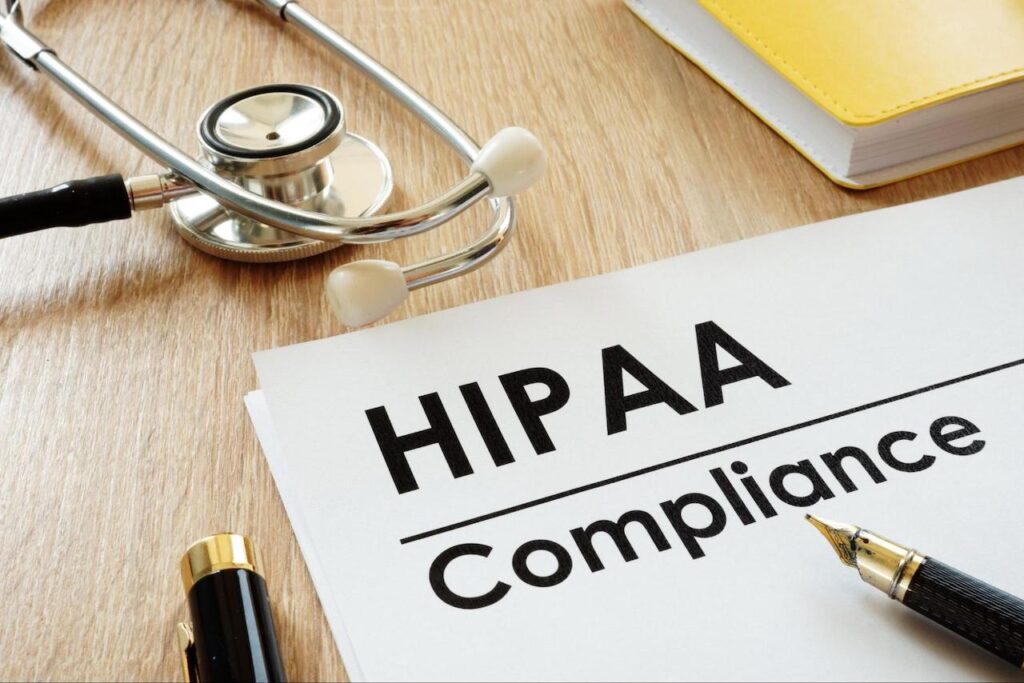The COVID-19 pandemic has increased the demand for telemedicine services, with doctors now providing one-to-one consultations and issuing prescriptions virtually. This also means that patient health information is transmitted online. While the absence of in-person consults is convenient, it calls for more stringent telemedicine security safeguards to protect healthcare privacy.
In this article, we discuss what telemedicine is in healthcare and the privacy risks and security safeguards associated with it. Let’s begin.
What is telemedicine in healthcare?
Telemedicine is the use of modern communication like telephone and video conferencing to provide clinical health care services remotely. Telemedicine allows healthcare providers to evaluate, diagnose, and treat patients without the need for an in-person visit.
Table of Contents
- What is Telemedicine in Healthcare?
- How Can Telemedicine Ensure Healthcare Privacy?
- Security Safeguards of Telemedicine Guaranteed with iFax
What is Telemedicine in Healthcare?
Telemedicine is the practice of medicine where a physician uses technology to deliver clinical care remotely. It is different from telehealth, which is a broader term that goes beyond telemedicine and refers to remote non-clinical services. The American Academy of Family Physicians approves the use of telemedicine to improve health provided that it adheres to pre-set guidelines.
We can’t mention telemedicine without bringing up the importance of privacy to healthcare. The United Nations’ Universal Declaration of Human Rights states that the “right to privacy” is a fundamental human right. This means that all individuals and agencies that are part of the healthcare system have the responsibility to use patient data only when necessary and to keep it confidential at all costs. The declaration applies to all breaches of individual rights beyond healthcare.
In addition, all physicians are bound by the Hippocratic Oath, which covers, in essence, the fiduciary doctor-patient relationship. This means that doctors have an ethical duty to act in the patient’s best interests and should never exploit the latter in any way. Even with the virtual nature of telemedicine, healthcare providers are still duty-bound to protect any information revealed or documented.
How Can Telemedicine Ensure Healthcare Privacy?
Most healthcare organizations already have measures to secure patient data during storage and transmission. However, the unprecedented rise in patient numbers has created new privacy risks. This is why those who practice telemedicine must be extra vigilant in adhering to safety and regulatory policies.
The Health Insurance Portability and Accountability Act of 1996 (HIPAA) is a federal law that ensures all healthcare systems correctly handle patient data based on three rules:
- Privacy Rule: Protection of all individually identifiable health information
- Security Rule: Protection of electronic-protected health information
- Breach Notification Rule: Requirement for covered entities to notify affected individuals, agencies, and the media in case of unauthorized access to protected health information
The Office for Civil Rights (OCR), under the Department of Health and Human Services (HHS), handles enforcing HIPAA guidelines. Violators will be subjected to steep penalties such as fines, suspension, closure or license revocation, or civil and criminal liability.
HIPAA prohibits providing telemedicine services and transferring patient data through consumer applications, like Skype or Facetime. Such apps are not designed to protect confidential information. While it may be convenient to chat with patients using popular platforms, it opens up one’s practice to compromise. Fortunately, there are online fax apps designed specifically for healthcare providers.
To be safe, use only virtual meeting and data transfer or fax solutions that are fully encrypted and HIPAA-compliant. To further secure all electronic exchanges, you also want to use a service that is GLBA- and GDPR-compliant. GLBA refers to the Gramm-Leach-Bliley Act (for the secure handling of financial information), while GDPR refers to the General Data Protection Regulation (for telemedicine services provided to patients in European Union member states).
Security Safeguards of Telemedicine Guaranteed with iFax
Delivering telemedicine and telehealth services is easier when you have the right tools to back you up. iFax is an electronic faxing app that is HIPAA-, GLBA-, and GDPR-compliant. We adopt a military-grade 256-bit SSL end-to-end encryption system that allows your practice to go fully digital without the risk for data compromise.
We have been providing online faxing services to health organizations for over 10 years, enabling doctors, clinics, hospitals, and other institutions to conveniently exchange sensitive records online. Our state-of-the-art technology helps you stay compliant while reducing faxing costs and boosting productivity. You can receive and send a fax online using your mobile device at any time and from anywhere while staying updated on the status of transfers in real-time.
iFax is accessible via a web application, but you can also download the iFax app to your iOS, Android, macOS, or Windows device.







